2026 is already shaping up to be a huge year for Capcom. Not only do we have Resident Evil Requiem to look forward to, but a bevy of survival horror ports from the series coming to Switch 2. There’s also Onimusha: Way of the Sword, Monster Hunter Stories 3, and many more.
One game stands out above the rest, however, and that’s the brand-new IP, Pragmata. The sci-fi action adventure title is finally set to launch next year, and ahead of its impending release, I caught up with director Cho Yonghee and producer Naoto Oyama at Tokyo Game Show. Among the topics we covered were the game’s endless delays, the rise of AI, and pitching a new IP in a time of remakes and remasters.
The Many Delays Of Pragmata
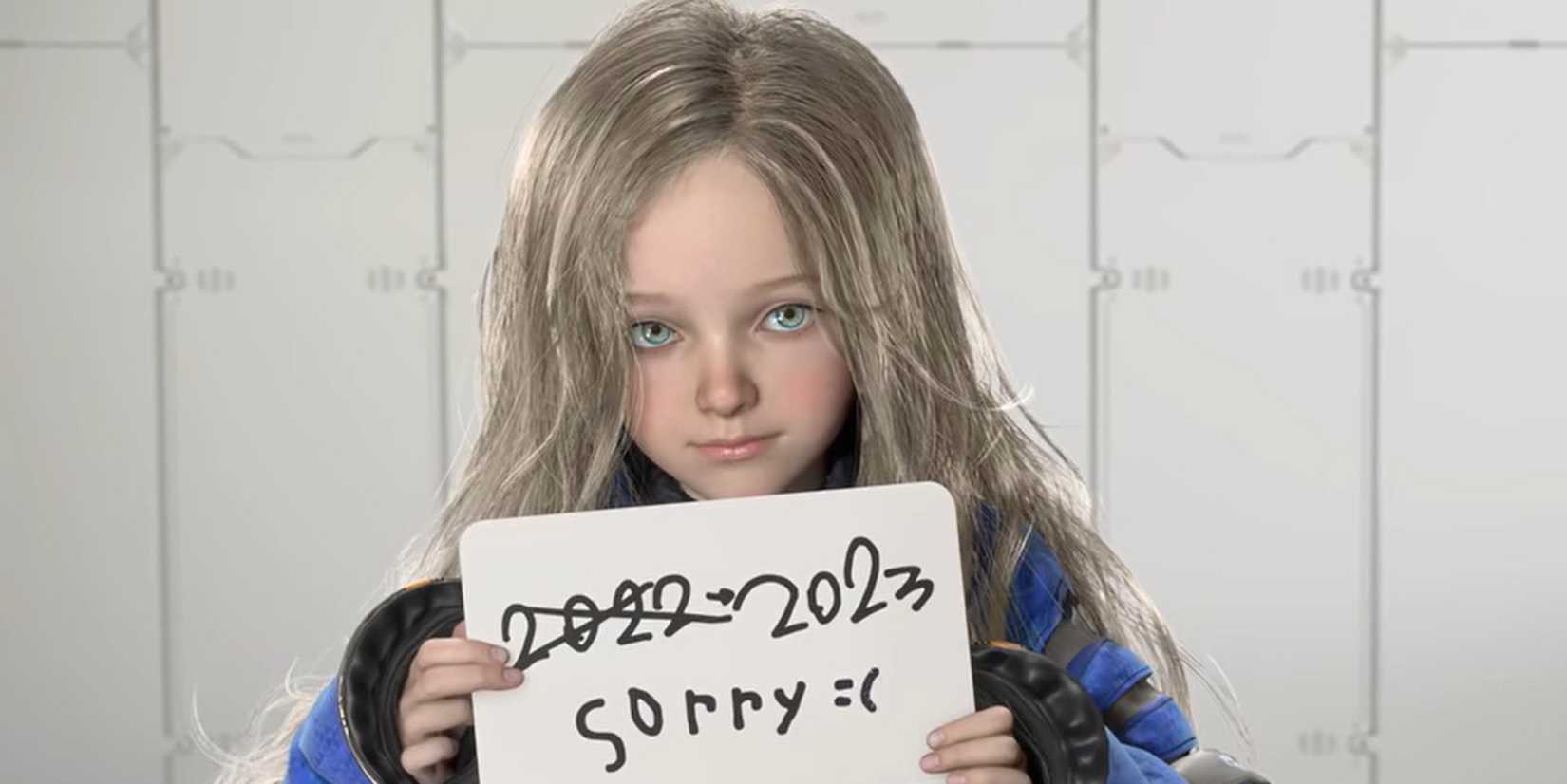
via Capcom
It’s hard to talk about Pragmata without first touching on the game’s many high-profile delays. It was first revealed in 2020 and slated for release in 2022. It then slipped to 2023, before being delayed indefinitely. It was only in June of this year that a concrete release window was announced, with Capcom promising the game would finally surface in 2026.
“The basic concept of the game hasn’t changed since the original version,” Yonghee tells me. “We always had Hugh, who was in charge of the gunplay, but on top of that, we had the hacking. We had to look into how we were going to solve that for the game.”
While historically reluctant to discuss the reasons for its delay, Yonghee opened up, admitting that implementing the hacking was a major difficulty for the team.
”It’s a big reason for it [the delay],” Yonghee says. “There was so much trial and error and back and forth just to see what could land and what works best. The snake puzzle [the way in which players complete hacks] is something that is a bit more recent.”
Oyama was then quick to expand on Yonghee’s points, telling me, ”Having the two mechanics, Diana’s hacking and Hugo shooting, has been one of the causes for us to put more time into that game. We took our time to balance it all out so it works properly in the full game.”
If we didn’t put that trailer out back then, Pragmata might not be the same game it is today.
Much of the early time taken on the hacking mechanics was surprisingly less focused on the mechanics, and more on the visuals.
“On the right side of the screen, you have the puzzle box pop up, and then on the left side is where the shooting happens,” Oyama tells me. “In the early development, we were going back and forth with just how that placement would work. If you took up too much space with the hacking, then that just, gameplay-wise, meant people were too focused on the hacking. If you shrink it too much, people will focus too much on the shooting. You have this balance, not only in gameplay, but also visually.”
When I played the game at Tokyo Game Show, I initially felt a little overwhelmed. Trying to balance the hacking on one side of my screen with the gunplay on the other meant my brain was trying to be in two places at once. While the implementation was great, there was a lot to balance. This isn’t something Yonghee is worried about.
“We tried to make sure there is plenty to keep things fresh as the game progresses, adding more and more elements, but at the same time, your understanding of the game is improving,” he tells me. “They’re introduced one by one, and they come quite intuitively, so you’ll get used to all these new elements as you play through. Just as you get used to one thing, that’s when Pragmata introduces the next.”
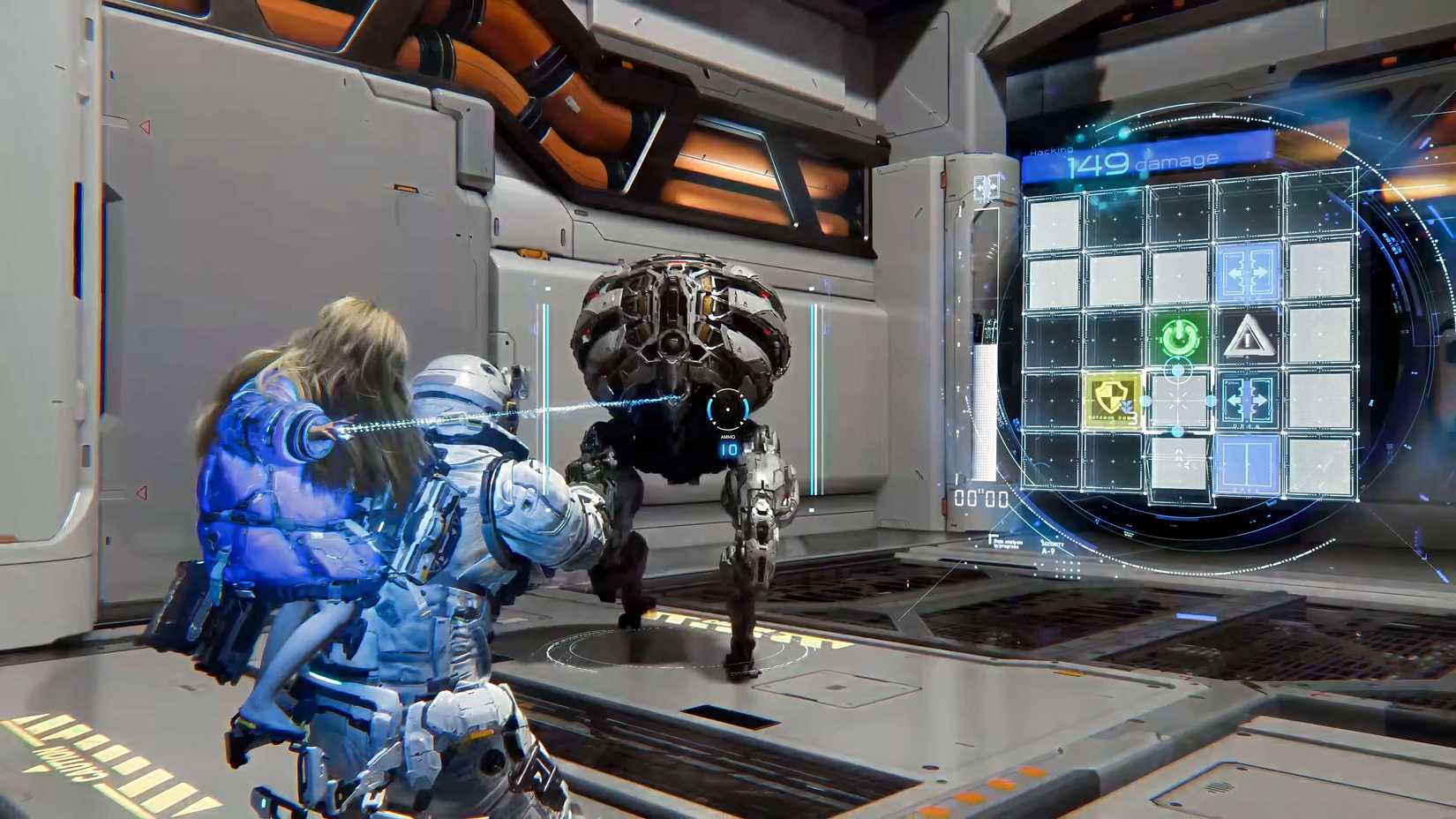
With the game revealed six years before its eventual launch, assuming it receives no more delays, it would be easy for the Pragmata team to feel regret. Yonghee and Oyama see it differently, though.
“Putting the game out there so early served as motivation for us,” Yonghee tells me. “I think that’s one of the reasons why we were able to complete the game into what you see today, is because we had that opportunity to show off the game early. If we didn’t put that trailer out back then, Pragmata might not be the same game it is today.”
Oyama also suggests that it helped Pragmata to become a self-sustaining marketing machine, saying, “Whenever there was a digital showcase, people were always expecting Pragmata.”
Predicting The AI Future And Designing An AI Character
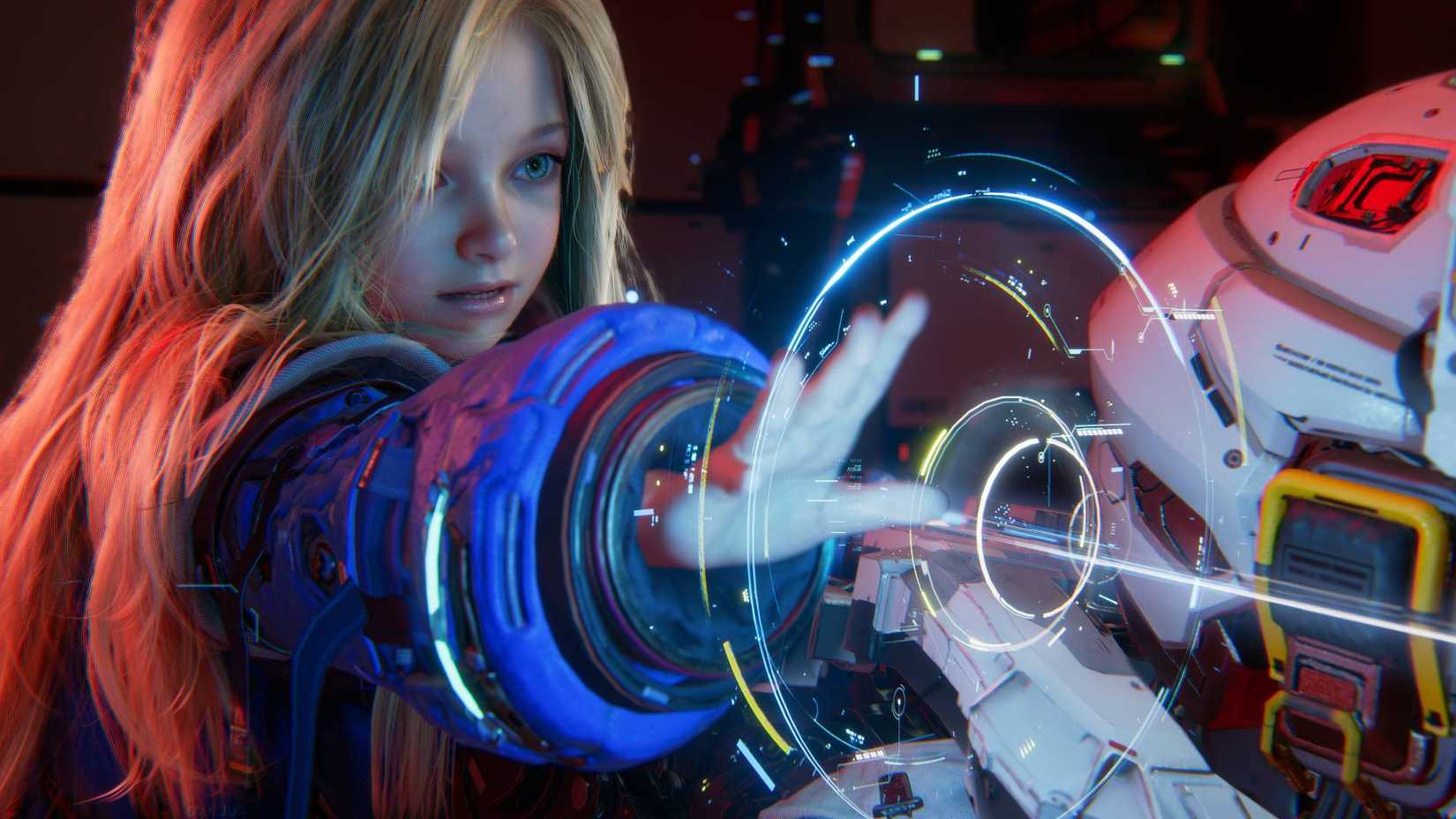
AI, whether we like it or not, is becoming a big part of our daily lives. Companies are forcing it upon us, and it’s appearing in places we’d never expect it to appear. The revolution has, however, only come to fruition in the past couple of years, and Pragmata, a game with a heavy focus on the technology, was revealed five years ago.
“I didn’t really make any predictions. We didn’t really predict AI,” Yonghee laughs. “When we were thinking about creating Pragmata, we started with the moon setting, and of course, it’s science fiction, so we thought AI was a super fit for the game.”
“We’re trying to depict the near future, and ultimately, that’s why we had AI as a theme,” Oyama adds. “But I’m surprised it has become such a hot topic. We didn’t really think AI would be this big by this time.”
There were lots of different Dianas. There were robot Dianas, mecha-like Dianas, but we landed on a more human-like Diana.
While implementing the hacking was the biggest issue for the Pragmata team, having one of the game’s core characters be an AI-driven, human-like android presented its own set of challenges.
“We thought a lot about the character design for Diana,” Yonghee tells me. “There were lots of different Dianas. There were robot Dianas, mecha-like Dianas, but we landed on a more human-like Diana. Because of this, and the way she helps Hugh, she has a certain likability.
“It’s not just the looks either; it’s the gestures, the way she talks, the way she acts and reacts, her personality. We spent a lot of time on that, and that’s what makes her uniquely android.”
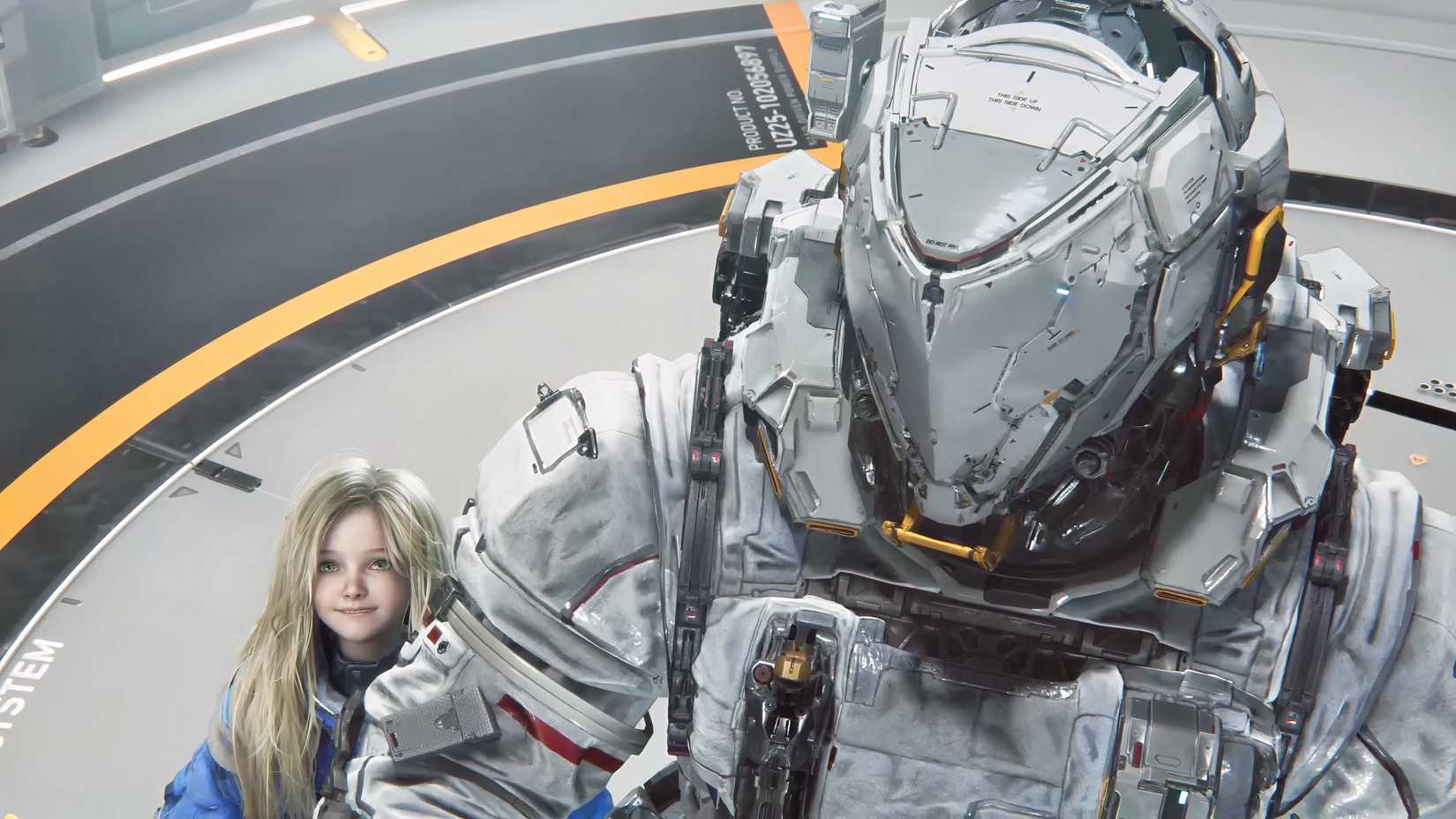
Capcom is arguably in its prime. A consistent flurry of critically acclaimed, commercially successful titles has hit the market in recent years. Yonghee believes the company has a particular mindset that has helped the Pragmata team.
“I think we’re in an era where we [game studios] don’t want to challenge ourselves,” he tells me. “There isn’t a shortage of creative new games; it’s just that most of those come from indie studios with the ability to bring new stuff to the table.
“With Capcom, we have the ability to have games like Pragmata, where we can pitch a new idea and we’re able to turn it into a full-sized game. It’s not just pragmata either; we’re constantly trying new IPs and titles. We have the company’s support to create this new game.”
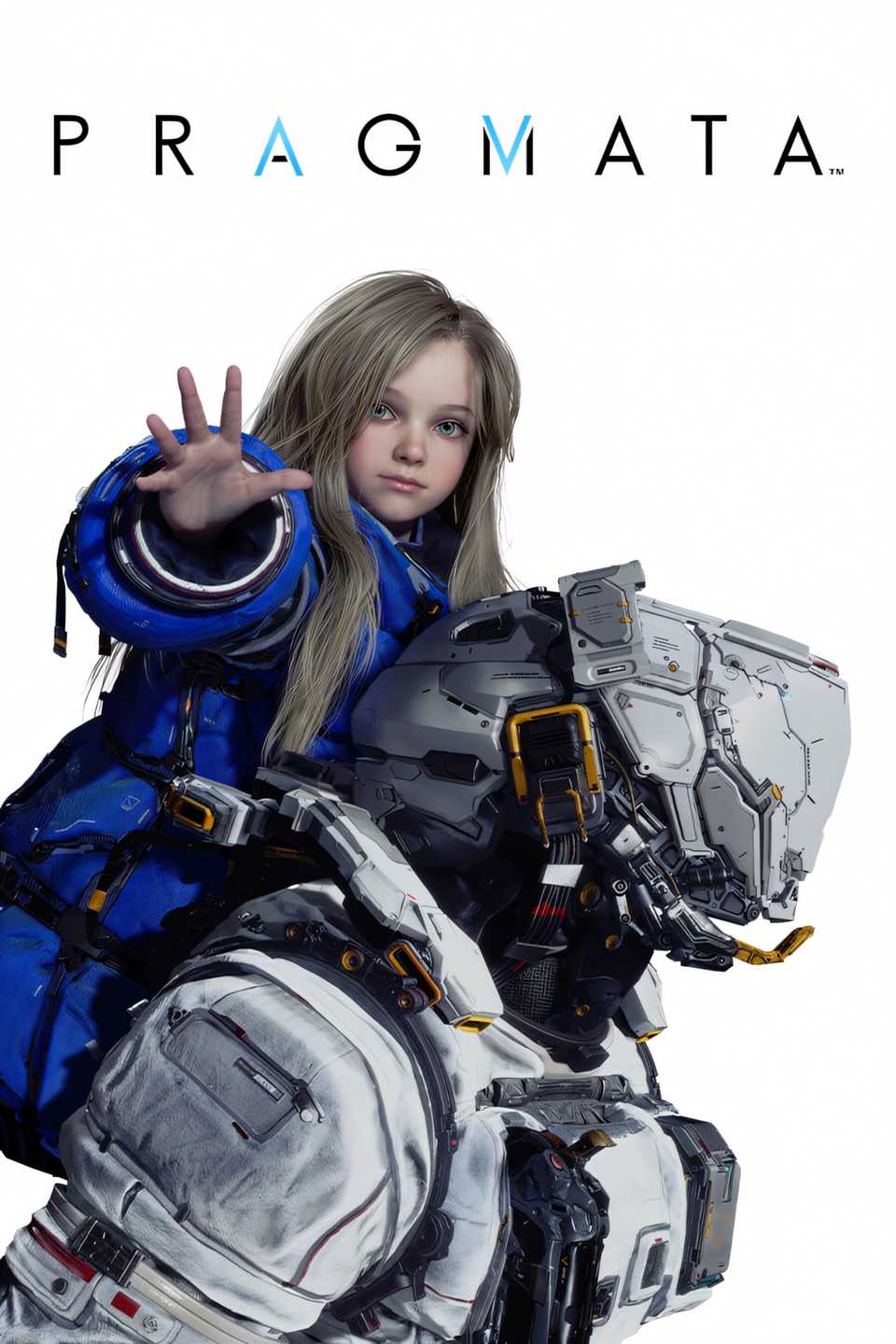
Released
2026
Engine
RE Engine
Number of Players
Single-player




AloJapan.com